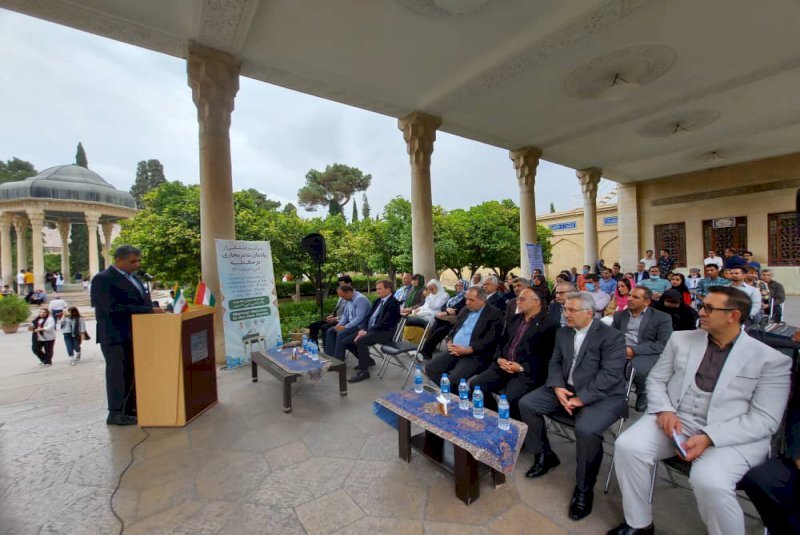Bust of Hungarian poet unveiled at Hafez mausoleum

TEHRAN—On Friday, a bust of Hungarian poet Mihály Csokonai Vitéz (1773-1805) was unveiled during a special ceremony at Hafezieh in Shiraz, where the illustrious Persian poet Hafez is laid to rest.
Hungary’s Ambassador to Iran Zoltan Varga-Haszonits, Fars province’s tourism chief Seyyed Mohsen Moayyednejad, and several diplomats and cultural officials attended the ceremony, CHTN reported on Saturday.
Hungary and Iran have had a long history of cultural relations for nearly two centuries, and this ceremony signifies the continuing relationship between these two countries, the Hungarian ambassador said.
Shiraz and Pecs in Hungary became sister cities in 2016, and this should not be halted by this ceremony and these cultural exchanges should continue, he added.
Recently, in cooperation with Shiraz Municipality and Pecs Municipality, 50 poems of Hafez have been translated into Hungarian, he explained.
The prominent Hungarian poet Csokonai wrote poetry for Hafez, and his poems, like Hafez’s, emphasize the importance of loving and living in the present, he mentioned.
For his part, Moayyednejad said that there are a lot of cultural similarities and commonalities between Iran and Hungary that have contributed to the strengthening of bilateral relations between the two countries.
In the distant past, the relations between the two countries have been very good and have developed in recent years, highlighting the importance of cultural exchanges between the two countries and their increasing cooperation, he added.
Csokonai is a well-known poet in his country. According to Britannica, he had a brief career as an assistant master at the Calvinist college, and then the sake of a wealthy girl (the ‘Lilla’ of his poems), he tried to secure a permanent post, but by the time he had obtained such a position, in a small town, she had already married. Csokonai returned to his hometown poor and consumptive. He died there without having seen his poems published.
Iranian prominent poet Hafez is most famous for his Divan, and among the many partial English translations of this work are those by Gertrude Bell and H. Wilberforce Clarke.
Encyclopedia Britannica comments that the extraordinary popularity of Hafez’s poetry in all Persian-speaking lands stems from his simple and often colloquial though musical language, free from artificial virtuosity, and his unaffected use of homely images and proverbial expressions.
The poetry of Hafez is soaked in a deep sense of humanity and echoes ranging from historical events, biographical descriptions, and details of life in his hometown, Shiraz.
Experts believe that Hafezieh delicately intertwines the beauty of a well-manicured Persian garden with a spiritual atmosphere that stems from the 14th-century poet.
Set in a charming orchard, his tomb is surmounted by an octagonal dome supported by eight stone columns. The internal side of the tomb bears elaborate telework.
The current marble tombstone that is engraved with a long verse from the poet has placed the monarch Karim Khan, in the 18th century.
ABU/AFM
